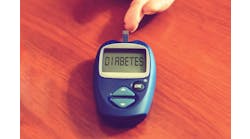On Sept. 28, the U.S. Food and Drug Administration and the Veterans Health Administration (VHA) announced via a press release a collaboration that aims to help accelerate American medical device innovation to further improve and benefit public health. The Seattle-based Veteran Affairs’ VA Ventures Innovation Institute will host 12 FDA staff to promote collaborations between the two agencies. The focus of the FDA staff will be on regulatory science and the focus of the VA staff will provide clinical context for test development and provide hands-on training.
The release states that “Together, the organizations will work toward developing and disseminating new tools designed to test the safety and effectiveness of medical devices and emerging technologies. These “off-the-shelf” testing tools will provide innovators with straightforward, reproducible and cost-effective testing methods throughout the product development cycle. Providing standardized tests can help streamline the regulatory evaluation process, accelerating the time it takes for products to reach patients by increasing predictability in the product development process. This effort may also reduce risks for early innovators that might not have access to more elaborate testing systems.”
Initially, efforts between the two agencies will focus on interoperable systems that can exchange health information, specifically diagnosis and treatment of patients, automatically. According to the release, a growing number of medical devices, like ventilators and fluid resuscitation systems, will be controlled independently based on inputs from sensors.
Future projects will include the development of test methods for devices to be used at a distance through 5G networks. The release notes that these devices have the potential to improve medical treatment for patients in remote and underserved areas.
Jeff Shuren, M.D., J.D., director of the FDA’s Center for Devices and Radiological Health was quoted in the release saying that “Both the FDA and VA need to stay at the forefront of new medical technology development, and the science of evaluating new technology. This strategic alignment between our organizations creates a unique environment to achieve shared objectives for accelerating patient access to safe, innovative and effective medical devices. We are eager to gain valuable insight from VHA clinicians and scientists using a real-world perspective, and we look forward to working with our federal colleagues to help ensure Veterans and all Americans have access to the most innovative medical solutions and technologies to improve their health and quality of life.”
The release concludes by saying that “The partnership between the VA Ventures Innovation Institute and the FDA’s Center for Devices and Radiological Health will afford a valuable opportunity which can lead to lower-cost medical advances and improve technologies and capabilities required for equitable healthcare. The VHA and the FDA look forward to strengthening each agency’s joint commitment to advancing and promoting high-quality healthcare.”


